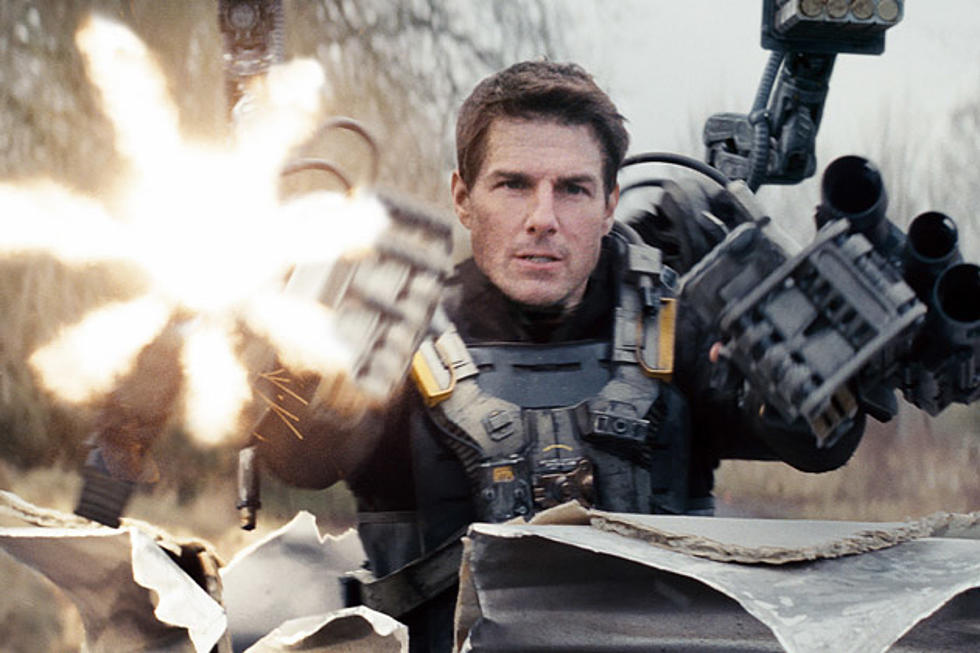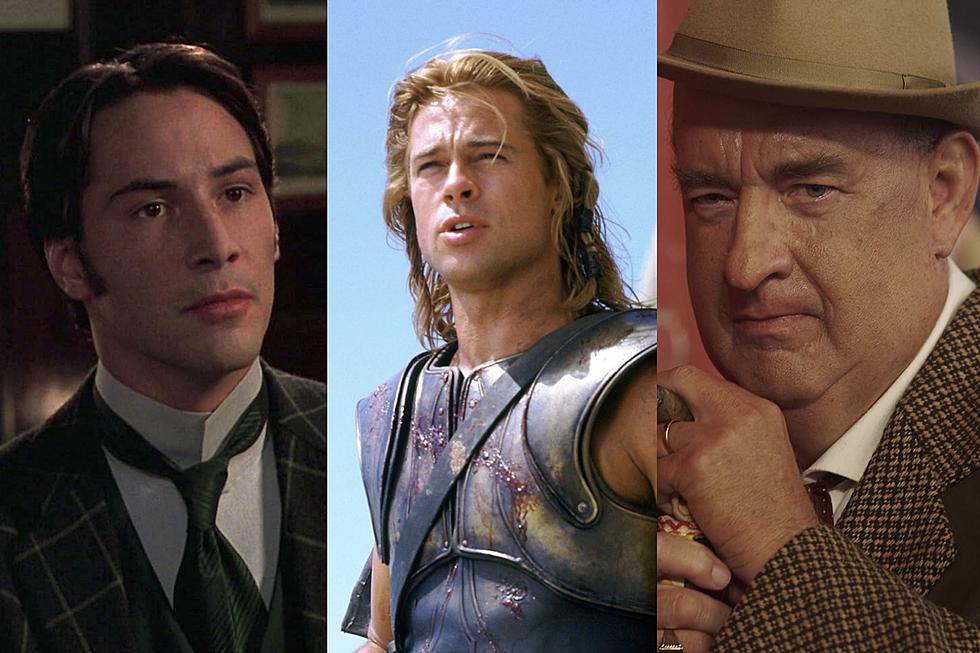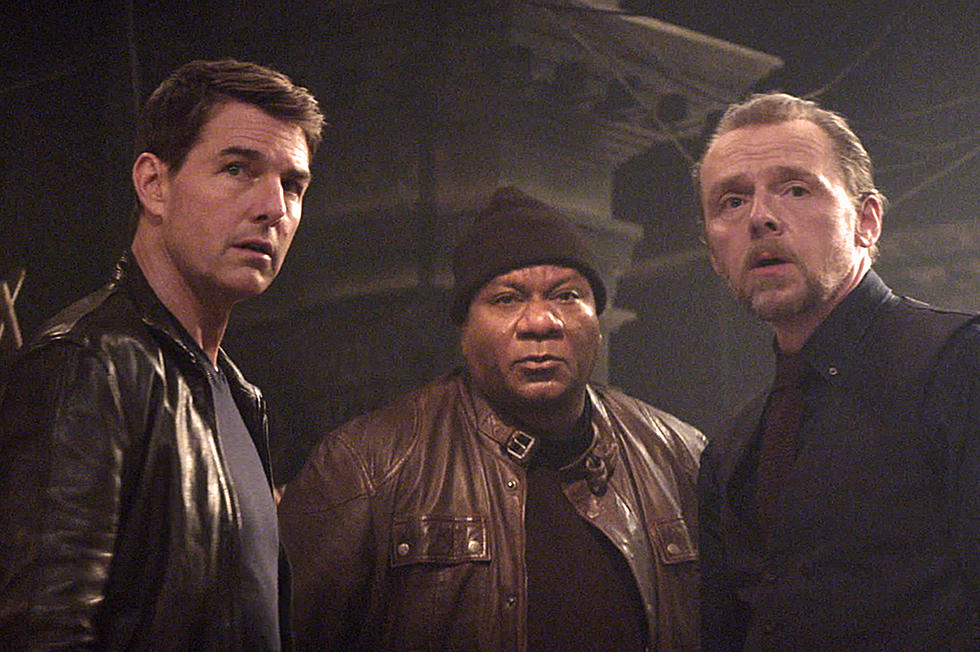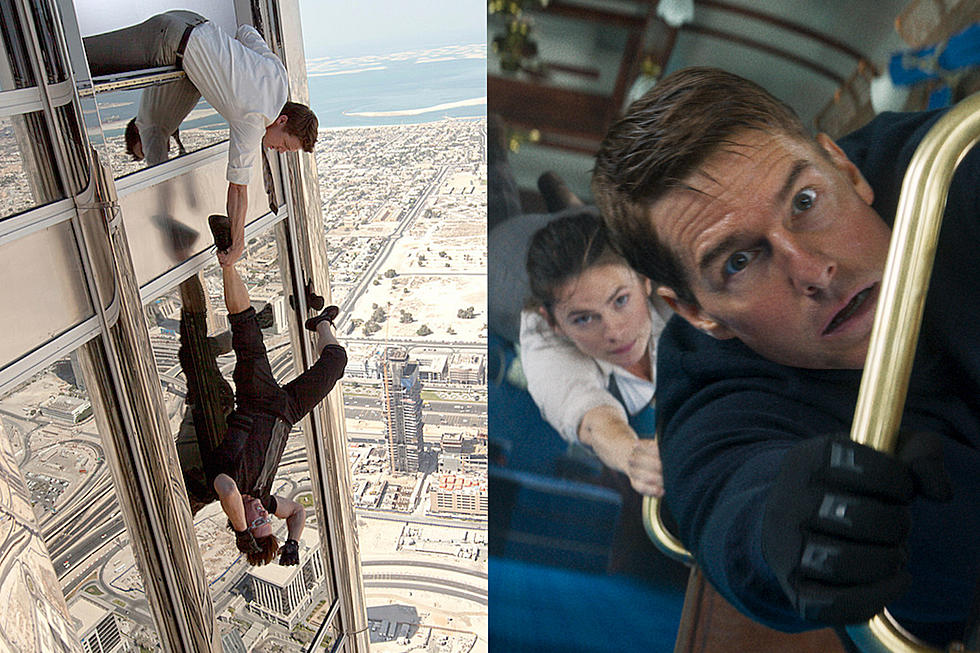
‘Edge of Tomorrow’ and the Influence of Video Games on Modern Movies
Video game movies suck. It's a scientific fact.
No matter how popular it may have been among gamers, a great video game seems instantly doomed whenever it attempts to jump to the big screen. Whatever made it tick is inevitably lost in translation. Game narratives are built around gameplay and when you remove that gameplay, you don't have much left.
So while, traditional video game movies may suck, something new is on the horizon. As a new, younger generation of directors take over Hollywood, the influence of games is now being felt on filmmaking itself. A new breed of video game movie has arrived. These movies aren't based on specific properties, but they speak the language of games and gaming culture.
Video game tropes form the backbone of 'Edge of Tomorrow,' a film whose video game subtext is so obvious that it stops being subtext and just becomes text. Tom Cruise plays a soldier in a futuristic sci-fi world who dies while battling an alien invasion, only to find himself waking up alive and well a day earlier. He proceeds to relive the same day over and over again, dying countless times in countless different ways. Through sheer reputation (the film's tagline is "Live. Die. Repeat."), he transforms from an ordinary grunt into an effective and deadly soldier.
Gamers will surely know that feeling. You march your digital avatar into an action scene, only to get brutally killed by an enemy. So, you hit continue or reload your save and you try again. This time, you know the ambush is coming and you're ready. You survive. And then you get killed by the other bad guy around the next corner. So you try again, a little smarter, a little better and little more prepared for the challenge. The best video games challenge you, but they also train you -- they put you through the meat grinder to transform you into an expert.
Video games have been borrowing from movies for decades. The favor is now being returned.
Most movies rightfully put a huge emphasis on stakes. Heroes have once shot to save the day and one shot alone and drama comes from watching them make the best possible use of that one shot. Video games cannot generate that kind of tension. A tough level or a tricky boss battle can always be replayed and your failures can be erased. 'Edge of Tomorrow' gleefully throws away traditional stakes. It kills its hero countless times and lets him reset. It's fueled by video game logic, finding its thrills in its hero solving a puzzle through countless failures. It may not be based on a video game, but it replicates the thrill of playing a video game better than any other movie.
While 'Edge of Tomorrow' may be the latest (and biggest) example of this new breed of game-influenced film, but it's not the first.
It's less obvious as Cruise's film, but Gareth Evans' modern action classic 'The Raid' also speaks the language of gamers. Set in an apartment complex that's home to a literal army of criminals, the film follows a few tough-as-nails police officers as they battle their way to top floor. The fact that characters are literally traversing a series of levels is no accident. The fact that the film continuously introduces new enemy types as things get hairier is no accident. The fact that the whole plot pauses so the good guys can have a "boss battle" is no accident. Critics of 'The Raid' claim that it's all action and no story ... and that's true, but it's also missing the point.
'The Raid' is an action showcase for sure, but it's also a perfect recreation of video game momentum. The film is so intense and so fast that manages to imitate the breathless pace of a particularly challenging game. By making his action so brutal and punishing his characters so much, Evans simulates the inherent challenges of gaming, perfectly complementing the arcade-beat-em-up-style structure of the screenplay. Like the best button-mashers, 'The Raid' is exhausting.
And, there's Edgar Wright's 'Scott Pilgrim vs. the World,' which wears video game iconography as a badge of pride. Considering that movies have been misrepresenting the gaming world for years, this film is something of a revelation. It expects its audience to have played games before. It expects them to understand the ins and outs of gaming culture and recognize sounds and musical cues from classic games. This isn't just a movie about young people -- it's a movie made for young people. Anyone over a certain age probably won't get much from 'Scott Pilgrim vs. the World.' It speaks a specific language, using concepts like XP and continue screens as shorthand for emotional beats. 'Edge of Tomorrow' may simulate the gaming experience, but it houses it in a science fiction framework. That's not the case here: Wright is completely unashamed of his gaming experience and expects his that his audience isn't, either.
It's time for "like a video game" to be redefined in film writing. Comparing soulless movies to video games has been a hacky complaint for a long time and films like this only prove what a misguided criticism it really is. When overblown CGI nonsense like 'I, Frankenstein' gets called out by critics for "feeling like a video game," that's only evidence that the critic has never picked up a video game controller in his life. Precious few movies actually simulate the specific thrills of gaming, so using an entire medium as a go-to insult for derivative, lame filmmaking is unfair. The gap between these two mediums is finally being filled and it's being filled by talented filmmakers utilizing their influences in surprising and satisfying ways.
We're on the cusp of something big here. As more and more people play games, more gamers will find themselves behind cameras and in theaters. Pretty soon, we'll be feeling the influence of this younger medium in stronger ways and yeah, not all of it is going to work. But right now, actual "video game movies" have a strong track record and they invoke feelings that no other movies have. Will it get old? Of course. Will these references and choices be lost on some people? You betcha, but they're here to stay.
Video games have been borrowing from movies for decades. The favor is now being returned.
More From ScreenCrush









